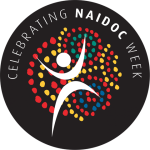COVID-19 booster shots (4th shot) available for patients 30+ years old
As COVID-19 cases increase due to the BA.4 and BA.5 subvariants, The Australian Technical Advisory Group on Immunisation (ATAGI) has updated their recommendation on the use of a second COVID-19 booster dose for people aged 30 years and over.
ATAGI now recommends everyone aged 50 years and over receive a second COVID-19 booster dose (4th shot), in addition to those for whom it was previously recommended.
From Monday the 11th of July 2022, the COVID 19 vaccination program will be expanded and will recommend the inclusion of a 2nd COVID-19 booster (or 4th dose) for people over 50 years of age. While the benefits are less obvious for those between the age of 30 to 49 years, they are now also eligible for the program.
A second booster dose is not currently recommended for people under the age of 30 years. While those under 16 years of age and without a chronic condition are not eligible for a booster at all and can only have their primary course of 2 shots.
The recommended interval between recent infection or the first booster dose and a second booster dose has reduced to three months.
Those under 30 years are eligible for a booster if they have a chronic condition
Eligible chronic conditions can be reviewed below:
- Cancer, with examples as follows: Non-hematological cancer including those diagnosed within the past five years or on chemotherapy, radiotherapy, immunotherapy or targeted anti-cancer therapy (active treatment or recently completed) or with advanced disease regardless of treatment. Survivors of childhood cancer
- Chronic inflammatory conditions requiring medical treatment with disease modifying antirheumatic drugs (DMARDs) or immunesuppressive or immunomodulatory therapies with examples as follows: Systemic lupus erythematosus, rheumatoid arthritis, Crohn’s disease, ulcerative colitis, and similar who are being treated
- Chronic lung disease with examples as follows: Chronic obstructive pulmonary disease, cystic fibrosis, interstitial lung disease and severe asthma (defined as requiring frequent hospital visits or the use of multiple medications).
- Chronic liver disease with examples as follows: Cirrhosis, autoimmune hepatitis, nonalcoholic fatty liver disease, alcoholic liver disease
- Severe chronic kidney disease (stage 4 or 5)
- Chronic neurological disease with examples as follows: Stroke, neurodegenerative disease (eg dementia, motor neurone disease, Parkinson’s disease), myasthenia gravis, multiple sclerosis, cerebral palsy, myopathies, paralytic syndromes, epilepsy
- Diabetes mellitus requiring medication
- Chronic cardiac disease with examples as follows: Ischaemic heart disease, valvular heart disease, congestive cardiac failure, cardiomyopathies, poorly controlled hypertension, pulmonary hypertension, complex congenital heart disease
- People with disability with significant or complex health needs or multiple comorbidities which increase the risk of poor outcome from COVID-19, particularly those with trisomy 21 (Down Syndrome) or complex multisystem disorders
- Severe obesity with BMI ≥ 40 kg/m2
- Severe underweight with BMI < 16.5 kg/m2
If you believe you have a chronic condition that is not listed above, ATAGI said the list is not exhaustive, and that ‘providers may include individuals with conditions similar to those listed below, based on clinical judgment’.
Other vaccine updates
Influenza has been particularly problematic this year due to multiple years with very little infection levels and low uptake of the influenza vaccine most likely due to a population that has been “vaccinated out”. Influenza remains a serious medical condition and is particularly dangerous for the chronically ill and the elderly. There is a lot of influenza circulating in the community and influenza vaccination is still recommended for those who have not had it yet.
Making a booster booking
Making a booking is simple and can be done online using the BOOK NOW button on top of this page or by calling 02 9817 2080. There is no waiting list.
Please wear a mask when you attend the practice.






